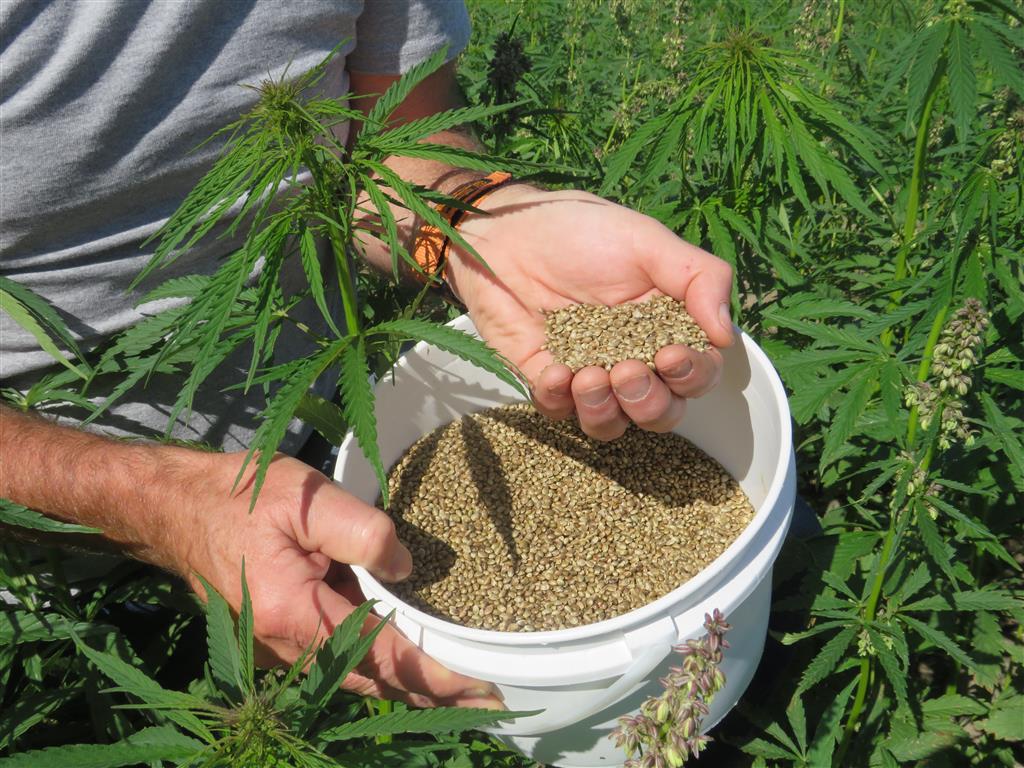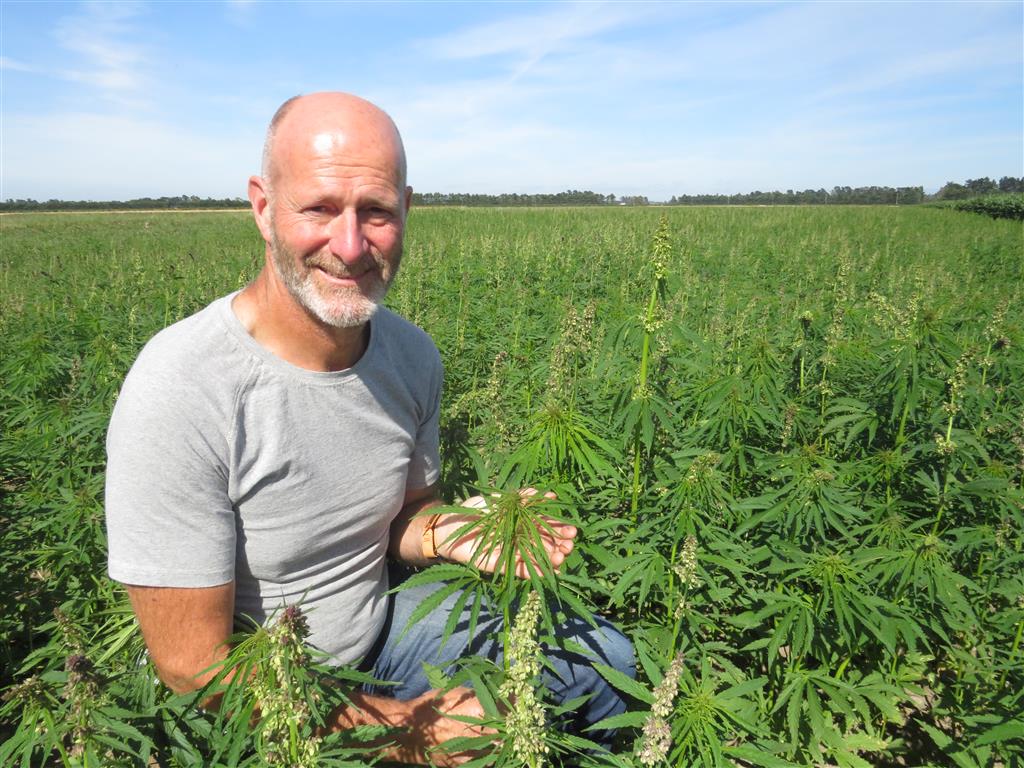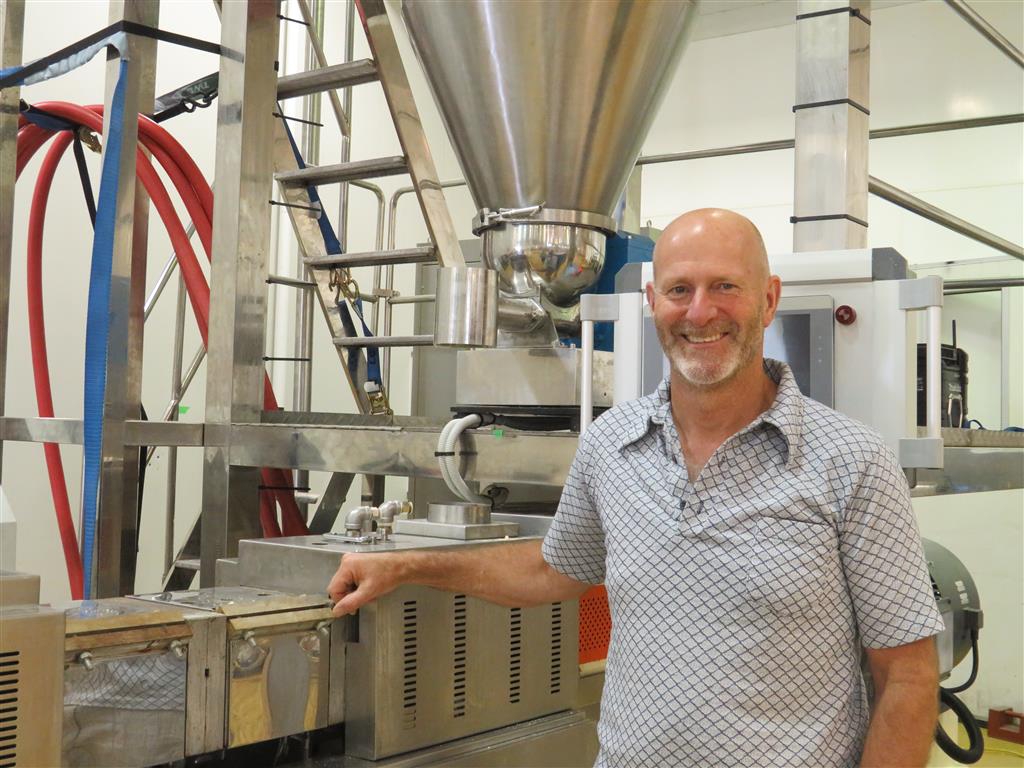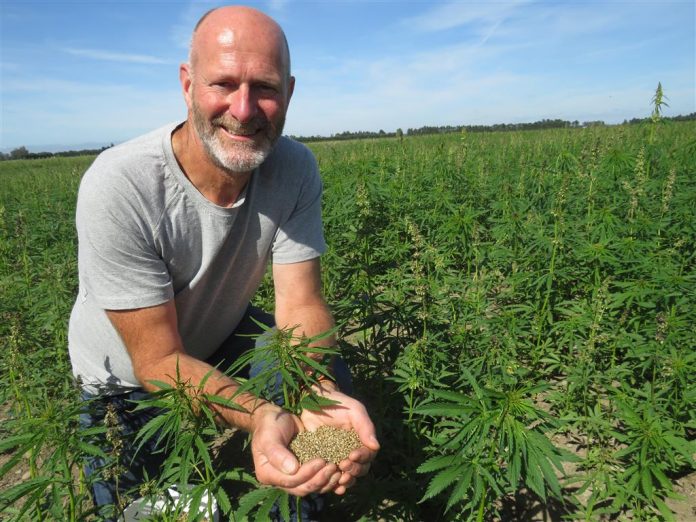New Zealand company Sustainable Foods is relocating to Mid Canterbury to be closer to suppliers of its core ingredient – hemp seeds.
As the company’s products take off and it expands into Australian markets, it wants to be in the district it says is at the centre of New Zealand’s hemp growing industry.
Sustainable Foods chief executive, and founder, Justin Lemmens said staff recruitment was well under way as the company prepared for its new 1400sqm plant at Fairton to go operational next week.
There will be about 16 employees, covering production, dispatch and support.
‘‘We are 100 per cent committed to the area,’’ Lemmens said, speaking of the move from the company’s former base of Paraparaumu, Wellington.
Hemp seeds are a source of high quality protein.
In 2018 the law changed to add the seeds to the list of allowable food products in New Zealand.
They have since become popular with vegetarians and people wanting to reduce their meat intake due to environmental concerns.
Sustainable Foods’ products include red meat and chicken alternatives.
They are supplied and sold under the plan*t brand in supermarkets, and restaurants such as Hell’s Pizza, Tank Juice and BurgerFuel.

Producing a Kiwi-made product for nourishment and sustainability to meet consumer needs was at the foundation of the company, Lemmens said.
‘‘Food is medicine, what we put into our bodies can actually mean we get better outcomes if we so choose,” he said.
Lemmens is an engineer by trade, has more than 25 years in business, primarily in food manufacturing and fast-moving consumer goods products.
‘‘Throughout that journey, a little bit of navel-gazing in my mid-30s, (I realised) the thing that gets me out of bed is building things.
‘‘Whether that’s a bricks and mortar facility, whether it’s a recipe or a process and a team to deliver on the business strategy, that’s what really drives me,’’ he said.
The realisation became the start of a new direction in innovation, one touted as a world first.
Sustainable Foods, founded in 2018, developed its hemp product as part of a five-year research and development project with Reddit Institute, at Massey University.
They then partnered with Food South, part of the Food Innovation Network of New Zealand, at Lincoln University.
The process uses hemp seed protein as a core ingredient in its natural state. The resulting product was a recipe with flavour, texture and nutrition.

“The consumer wants delicious food that has great taste and great texture,’’ Lemmens said.
‘‘We’ve only got one planet and we really need to look after what we have got. This is a significant lever that we can use both for our own nutrition, and also for improvement of environmental outcomes.
‘‘We’ve had prepared vegetarian-based food for the last 50 years; we haven’t delivered on taste and that’s unforgivable because we’ve had the ability to do that.
‘‘It’s only in the last five years or so that we’ve really had the ability to deliver on texture and that’s as a result of technology.’’
Sustainable Foods has designed and imported such technology, and has intellectual property (IP) for its unique combination of raw material and manufacturing.
Hemp is a different type of cannabis plant to marijuana, with only a miniscule level of tetrahydrocannabinol (THC), thereby having no psychoactive properties.
Its production in New Zealand is highly regulated to ensure illegal, high THC cannabis is not produced.
Chief commercial officer, and director, Morag McCay said this IP provided a base for in-house product development and innovation.
‘‘Last year we bought the specialist equipment to scale production of our unique hemp product and signed a supply partnership agreement with Hemp New Zealand.’’

She said products were delicious and enjoyed by people reducing meat intake, often for health reasons, as well as for vegans and vegetarians.
‘‘It looks and eats like chicken but doesn’t taste like chicken – it has a nutty, earthy, umami flavour that tastes really good,’’ she said.
‘‘All our products offer complete proteins and are developed to be nutritionally aligned with meat.
‘‘The protein contains all the essential amino acids, the products are low in saturated fats and have no cholesterol,’’ she said.
The company’s mission was to create plant-based protein alternatives mainstream consumers wanted to eat.
Over the past two years the company had been growing fast in supermarkets and was now expanding to food service, as well as exporting to food service operations in Australia.
HEMP PLANT:
The hemp plant is a fast-growing plant which consists of three main parts – seed, stalk and leaf. But by law, the only part that can be used for food is the seeds.
Hemp plants sequester carbon many times faster than trees, while enriching the soil as they grow.
Hemp foods and medicinal products provide a wide array of health benefits.
Hemp hurd is sustainable alternative to many environmentally damaging construction materials.
Hemp fibre is the strongest natural fibre available, made even stronger when processed with Hemp NZ’s revolutionary decortication machine.




